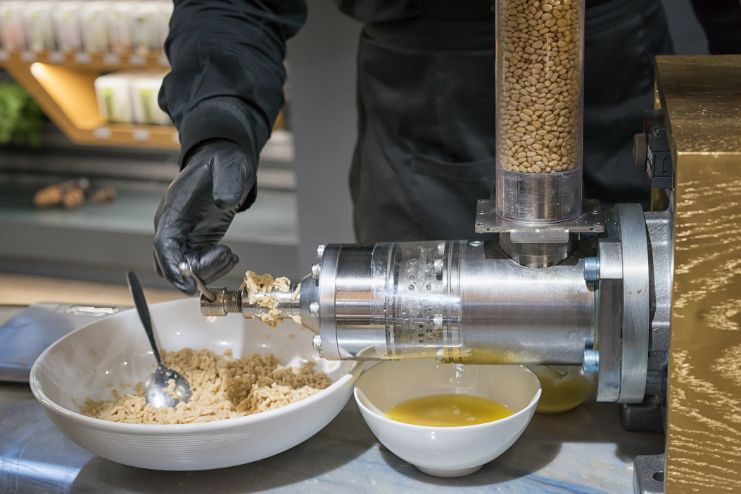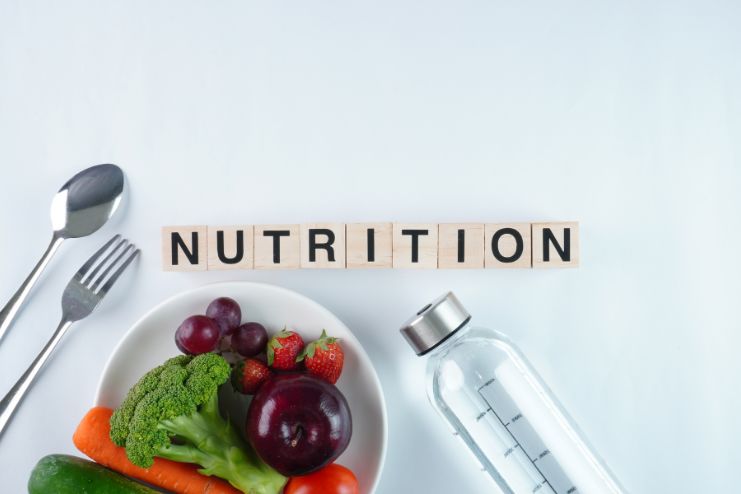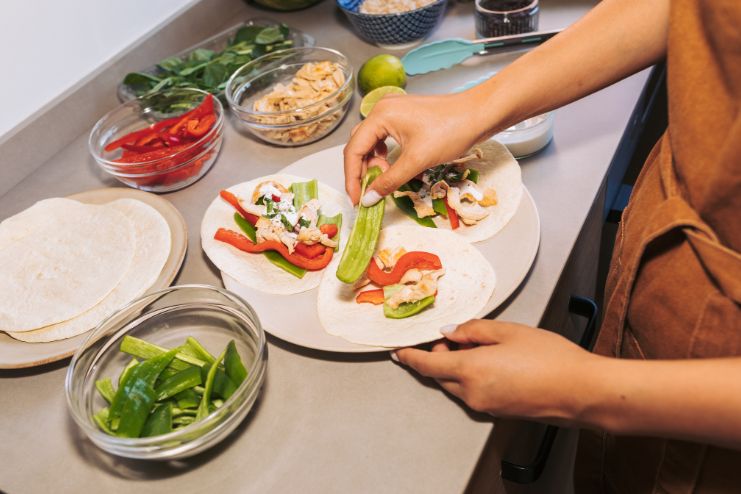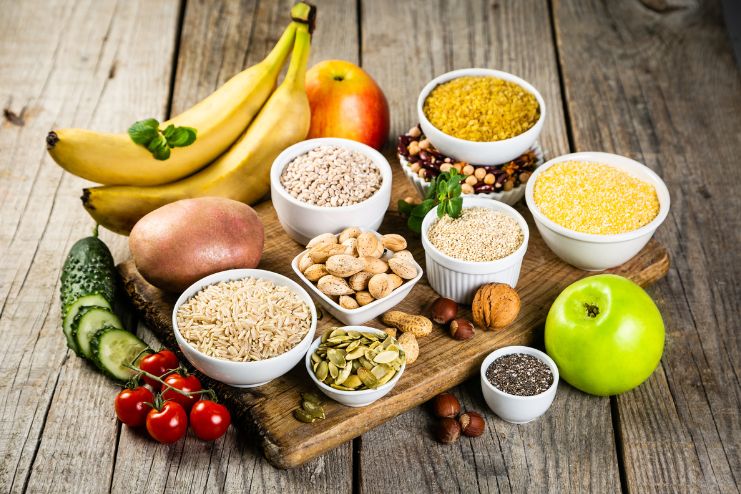Convenience often comes first in today’s busy world, especially for parents trying to juggle everything. Ultra-processed baby foods, like those handy pouches or jarred purees, have become a go-to option in many homes. They offer a quick solution with a consistent texture and long shelf life, making them appealing. But are they the best choice for your baby’s development?
Recent research has sparked concerns about the potential health effects of these highly processed foods, including nutritional gaps and even harmful contaminants.
In this article, we’ll discuss what ultra-processed foods are, the risks they may pose due to their lack of proper nutrients, and how you can still make healthier choices without compromising on convenience. We’ll offer practical, safer, and healthier alternatives that parents can turn to without sacrificing convenience.
What Are Ultra-Processed Baby Foods

Ultra-processed foods (UPFs) are industrial formulations made by combining multiple ingredients, including refined sugars, preservatives, and artificial additives. These foods often have little resemblance to the whole, natural ingredients they aim to replace.
They are designed to be convenient, but this convenience comes at the cost of nutritional quality. In the world of baby food, UPFs have become more prevalent, and understanding their makeup is key for parents who want to make informed choices for their child’s diet.
Examples of Ultra-Processed Baby Foods
UPFs in baby foods are widely available and often presented as healthy or convenient options for busy parents. Here are a few common examples of UPFs you will find in baby foods:
- Packaged baby cereals with added sweeteners: These cereals often contain refined sugars or artificial flavors to make them more palatable.
- Jarred fruit and vegetable purees with stabilizers: Some jarred baby foods contain additives to improve shelf life and maintain texture.
- Puffs, snack bars, and rice crackers with artificial flavors: These processed snacks often contain flavor enhancers and preservatives to make them appealing.
- Ready-to-eat baby food pouches with long shelf life: Although convenient, these pouches are highly processed to extend their shelf life.
Processing Spectrum: From Minimally Processed to Ultra-Processed
Not all processed foods are created equal. The extent of processing can vary, and it’s important to understand where different baby foods fall on this spectrum:
- Minimally Processed: These foods have undergone minimal processing to retain their natural form. Examples include fresh fruits, steamed vegetables, and plain yogurt. These are ideal for maintaining a balanced diet for babies.
- Processed: Processed foods include those that change from their original state but still retain some nutritional value. Examples include canned fruits, fortified cereals, and pasteurized dairy products.
- Ultra-Processed: Ultra-processed foods, which are extensively altered from their original form, often contain additives like sugars, preservatives, and artificial flavors. In baby food, examples include pre-packaged baby meals, flavored yogurt snacks, and instant cereals.
When we dig deeper, we find that many common baby foods fit the definition of UPFs. For example, many commercial baby cereals, especially those labeled as “breakfast cereals,” are ultra-processed. These often contain artificial flavors, maltodextrin, and emulsifiers to improve taste and texture.
Similarly, fruit and milk drinks, though marketed as healthy, frequently contain added sugars, artificial colors, and flavors, making them ultra-processed. Powdered milk formulas are considered ultra-processed due to ingredients like milk powders, oils, and added sugars.
The Nutritional Downside of Ultra-Processed Baby Foods

While ultra-processed baby foods may be convenient, their nutritional value often pales in comparison to whole or minimally processed options. These foods can lead to a range of health issues in infants and toddlers, from nutrient deficiencies to altered food preferences, potentially setting the stage for long-term health concerns.
- Excess Sugar and Artificial Sweeteners: Many ultra-processed baby foods contain hidden sugars and artificial sweeteners. These added sugars can train infants to develop a preference for sweet flavors early on, which may lead to unhealthy eating habits as they grow.
- Low Nutrient Density: One of the biggest concerns with ultra-processed baby foods is their low nutrient density. Often, they lose essential nutrients like fiber, healthy fats, and key vitamins, making them far less nutritious than whole foods.
- Harmful Additives and Preservatives: Ultra-processed baby foods commonly contain preservatives such as emulsifiers, stabilizers, and artificial flavors. These additives may disrupt gut health and metabolic functions.
- Highly Refined Ingredients: Many packaged baby foods use highly refined grains and synthetic vitamins rather than whole, nutrient-dense ingredients. These refined ingredients lack the natural goodness of whole grains, fruits, and vegetables, reducing the overall nutritional value of the food.
- Potential Health Consequences: Research shows that a diet high in ultra-processed foods can lead to health problems such as weight gain, increased body fat, and elevated blood sugar levels.
- Altered Food Preferences: Feeding babies ultra-processed foods regularly can alter their food preferences, making them more likely to choose these kinds of foods as they grow older.
- Nutrient Deficiencies and Malnutrition: Because ultra-processed foods are often high in added sugars, salt, and unhealthy fats while being low in essential nutrients like fiber, vitamins, and minerals, babies may face nutrient deficiencies and even malnutrition.
Read More: 5 Foods You Should Avoid Packing in Your Teen’s Lunch
The Health Risks of Ultra-Processed Baby Foods

From obesity to digestive problems, ultra-processed baby foods can negatively impact a baby’s development and long-term health.
- Obesity and Metabolic Issues: Early exposure to ultra-processed foods can lead to childhood obesity, diabetes, and metabolic syndrome. This excess weight also increases the risk of cardiovascular disease, type 2 diabetes, and other metabolic disorders as they grow older.
- Gut Health Disruptions: Ultra-processed foods often lack the prebiotic fibers needed for a healthy gut, and their artificial additives can disrupt digestion. This imbalance may lead to bloating, constipation, and long-term digestive problems.
- Delayed Taste Development: Frequent intake of ultra-processed baby foods can disrupt a child’s natural taste development. When babies get used to overly sweet or artificially flavored options, they may become less receptive to wholesome foods like fruits, vegetables, and proteins.
- Increased Risk of Allergies and Sensitivities: When babies are frequently exposed to these ingredients, they can develop food allergies or intolerances.
- Further Health Concerns: Ultra-processed foods typically contain lower essential nutrients like fiber, vitamins, and minerals, leading to nutrient deficiencies, malnutrition, and even stunted growth.
Read More: Are Artificial Food Dyes Causing Hyperactivity in Children?
Toxic Contaminants in Ultra-Processed Baby Foods

A growing body of research has revealed alarming levels of toxic contaminants, including lead, arsenic, cadmium, and mercury, in some commercial baby foods, which can pose serious health risks to infants.
- Heavy Metals (Lead, Arsenic, Cadmium, Mercury): Processed baby food often contains alarming levels of heavy metals, which can harm brain development and overall health.
- Pesticide Residues: Ingredients from industrial farms might have traces of pesticides, which may cause serious health issues.
- Plastic & Packaging Chemicals (BPA, Phthalates): Packaging materials often leach harmful chemicals into baby food, potentially disrupting hormones and posing other health risks.
- Acrylamide & Furan: These harmful chemicals can form during high-temperature cooking and may pose cancer risks.
- Micro and Nanoplastics (MNPs): Highly processed foods often contain more plastic contaminants, which can disrupt long-term health.
Safer, Healthier Alternatives to Ultra-Processed Baby Foods

As parents, we always want the best for our babies, and that starts with what we feed them. However, the rise of ultra-processed baby foods loaded with additives, preservatives, and hidden toxins poses serious health concerns for our little ones. The good news? You don’t have to rely on these products.
By making simple choices at home or choosing carefully when buying baby food, you can offer nutritious, wholesome alternatives that nourish your baby’s growing body safely. Below are some practical, healthier alternatives to ultra-processed baby foods, offering better nutrition and peace of mind.
Read More: Top 9 Baby Products Every New Parent Needs: Essentials for Baby Care
Homemade Baby Food: Simple, Nutritious, and Cost-Effective
Making baby food at home is easier than you think. You can choose exactly what ingredients go into it, ensuring your baby gets the most nutrients with no unnecessary additives.
- Pureed Options: Avocados, bananas, sweet potatoes, and steamed carrots are simple, nutrient-dense options that you can easily mash and puree.
- Finger Foods: As your baby grows, you can introduce soft-cooked vegetables like steamed broccoli or carrots, ripe fruits like sliced bananas or pears, and scrambled eggs for a soft yet solid option.
Best Whole Foods for Baby-Led Weaning
Baby-led weaning allows babies to self-feed, helping them develop fine motor skills and naturally appreciate real, fresh flavors. Whole foods are excellent choices for this approach, offering variety and nutrition.
Great options include mashed peas, lentils, sliced cucumbers, and soft fruits like ripe mangoes or watermelon chunks. You can also introduce small portions of shredded chicken, fish, or soft-cooked beans to provide a variety of protein sources.
Whole Foods for Safer Baby Nutrition
Incorporating whole, minimally processed foods into your baby’s diet will give your baby the essential nutrients they need for growth and development while avoiding the potential health risks of ultra-processed foods.
- Fruits & Vegetables: Ripe bananas, steamed or roasted vegetables such as sweet potatoes and carrots, mashed peas, avocado, and soft fruits like pears and peaches are great options for your baby.
- Proteins: Soft, cooked meat or fish, scrambled or boiled eggs, lentils, tofu, and chicken or turkey meatballs are excellent protein sources for your baby.
- Dairy and its Alternatives: Plain whole-fat yogurt, soft cheeses, and dairy alternatives such as almond milk or oat milk (if recommended by your pediatrician) can be introduced into your baby’s diet.
- Whole Grains: Brown rice, whole-grain pasta, oatmeal, and quinoa are fantastic choices to provide fiber and long-lasting energy for your baby.
How to Read Labels to Choose Healthier Store-Bought Options
For those moments when store-bought baby food is necessary, knowing how to choose healthier options is key. Not all processed baby foods offer equal nutrition, there are some that can still provide good nutrition.
- Look for Minimal Ingredients: Choose products with few ingredients—preferably whole foods like vegetables and fruits- without added sugars, salt, or preservatives.
- Organic and Clean Label Certifications: Organic or clean-label certified brands tend to use fewer artificial ingredients and harmful chemicals. They also avoid pesticide residues that are common in non-organic produce.
Read More: Raising Kids with Healthy Eating Habits in a Fast-Food World
Expert Recommendations and Guidelines

Globally recognized health organizations like the World Health Organization (WHO) and the American Academy of Pediatrics (AAP) strongly advocate for prioritizing whole, unprocessed foods over ultra-processed baby foods. According to these organizations, focusing on nutrient-rich foods during the first few years is critical for a child’s physical and cognitive development.
Pediatric nutritionists also stress the importance of a balanced diet filled with fruits, vegetables, lean proteins, and whole grains while recommending that parents limit packaged and highly processed options as much as possible.
Key Takeaways:
- Prioritize whole, fresh foods to support your baby’s optimal growth.
- Limit or avoid highly processed foods with additives, preservatives, and excess sugars or salts.
- Offer a variety of textures and flavors to help babies develop a natural preference for healthy, whole foods.
World Health Organization (WHO): Feeding Infants and Young Children Guidelines
American Academy of Pediatrics (AAP): Toddler Food and Feeding
Centers for Disease Control and Prevention (CDC): Nutrition for Infants
Harvard School of Public Health: The Importance of Healthy Eating for Kids
National Institutes of Health (NIH): Infant Nutrition
How to Balance Convenience with Better Nutrition
For busy parents, convenience is a major factor when planning meals, but you don’t have to sacrifice nutrition for the sake of time. A few simple strategies can help you offer nutritious, home-prepared meals without the hassle of daily cooking.
- Batch-Cook and Freeze: Prepare larger portions of homemade baby food and freeze them in small, baby-friendly portions. Use ice cube trays or silicone molds to store easy-to-thaw servings.
- Quick and Fresh Snacks: Keep fresh, nutritious snacks like bananas, yogurt, and cut-up fruits or vegetables handy as quick and healthy alternatives to packaged baby foods.
- Supplement with High-Quality Store-Bought Options: On those days when you can’t cook, choose minimally processed store-bought baby foods with simple, organic ingredients and no additives. Opt for glass jars over plastic ones to avoid chemical contamination.
Tips for Reducing Reliance on Processed Foods

Making the shift from processed to whole foods doesn’t have to happen overnight. Start by introducing small changes and gradually moving away from packaged options. Engaging babies with natural flavors and different textures from a young age can make them more receptive to healthier food choices.
- Gradual Transition to Homemade Alternatives: You can begin by replacing processed snacks with easy-to-make, whole-food alternatives like mashed bananas, sweet potato purees, or soft-cooked veggies.
- Introduce New Textures Early: Introduce different textures and flavors such as soft fruits, cooked grains, and mashed legumes early to help babies develop a positive relationship with healthy eating.
- Educate Caregivers and Family Members: Encourage family members and caregivers to understand the long-term benefits of whole foods. Share tips on simple preparation methods and mindful feeding to ensure everyone understands your baby’s nutritional needs.
Conclusion
In conclusion, ultra-processed baby foods come with several risks, from impacting gut health to potentially affecting brain development due to harmful chemicals and heavy metals. These foods can contribute to long-term health problems like obesity and digestive issues, and can even disrupt babies’ natural taste preferences.
With all these concerns in mind, parents need to focus on offering whole, minimally processed foods that are packed with nutrients and free from unnecessary additives.
You can decide what your baby eats by offering home-cooked food, which will ensure they get the best possible nutrition. Experts like the WHO and AAP encourage parents to limit packaged baby foods and opt for fresh, wholesome options instead.
For those needing some convenience, you can always prepare and freeze meals in advance or pick high-quality store-bought options with minimal ingredients.
With small, thoughtful choices, you can set your baby on the path to healthier eating and overall well-being.
After all, good nutrition today means a healthier tomorrow!
References
- Ultra-processed foods: the 19 things everyone needs to know
- Ultra-processed food: A guide for parents of under-fives
- How ultra-processed foods captured the baby and toddler market
- Ultra-processed food for infants and toddlers; dynamics of supply and demand
- How do ultraprocessed foods affect my child’s health?
- Ultra-processed food exposure and adverse health outcomes
- Assessment of the Risk of Contamination of Food for Infants and Toddlers
- Regulating Heavy Metals in Baby Food
- A closer look at infant food safety
- The best healthy snacks to give your child without buying ultra-processed food
In this Article
















